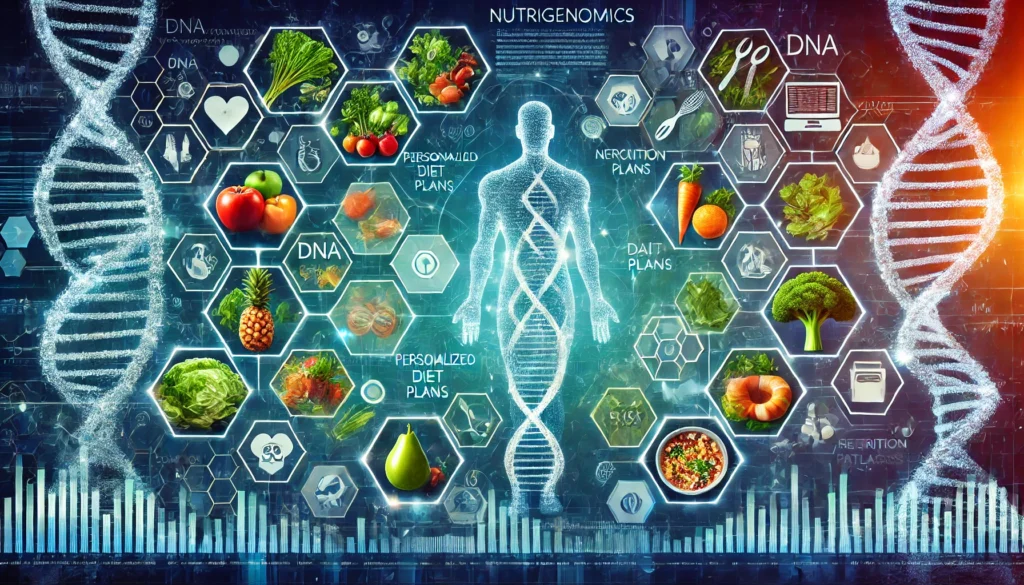Custom Diet Plans Based on Your DNA: The Power of Nutrigenomics

Custom Diet Plans Based on Your DNA: The Power of Nutrigenomics
Nutrition has evolved from a generalized approach to a more personalized and customized science. The emerging field of nutrigenomics delves into the intricate relationship between an individual’s genetic makeup and dietary needs, allowing for tailored diet plans that align with genetic profiles. By incorporating insights from nutrigenomics, individuals can optimize their health, manage weight effectively, and prevent potential health risks.What is Nutrigenomics?
Nutrigenomics is an interdisciplinary science that combines nutrition and genomics. It studies how nutrients and bioactive compounds in foods interact with genes to influence their expression. This interaction can affect metabolic pathways, health outcomes, and disease susceptibility. By decoding genetic variations, nutrigenomics helps to understand why individuals respond differently to the same foods. For example, some individuals are lactose intolerant due to variations in the LCT gene, which affects the production of the enzyme lactase. This insight enables the creation of personalized diets tailored to genetic predispositions.How Nutrigenomics Shapes Tailored Diet Plans
Tailored diet plans based on nutrigenomics optimize nutrient intake by considering an individual’s genetic profile. These plans extend beyond counting calories or balancing macronutrients and instead focus on:- Genetic predispositions: Identifying vulnerabilities to conditions such as Type 2 diabetes or heart disease.
- Metabolic functions: Adjusting diets to align with metabolic processes influenced by genetic markers.
- Chronic disease prevention: Utilizing personalized nutrition to reduce disease risk.
- Athletic performance: Tailoring diets to enhance recovery and performance based on genetic metabolism markers.
- Food intolerances: Addressing sensitivities such as gluten intolerance or caffeine metabolism.
Challenges and Ethical Considerations
Despite its potential, nutrigenomics presents several challenges:- Accessibility: Genetic testing can be costly and may not be widely available.
- Complexity: Interpreting genetic data requires expertise and consideration of lifestyle factors.
- Ethical concerns: Protecting genetic data privacy and preventing misuse are critical in fostering trust.
The Future of Personalized Nutrition
Nutrigenomics continues to advance, with ongoing research unlocking new insights into gene-nutrient interactions. Future prospects include:- Integration into healthcare: Routine genetic testing could become standard in personalized nutrition plans.
- Technological advancements: Improving accessibility and affordability of genetic testing.
- Collaboration: Partnerships between geneticists, dietitians, and healthcare providers to optimize nutrition strategies.




















